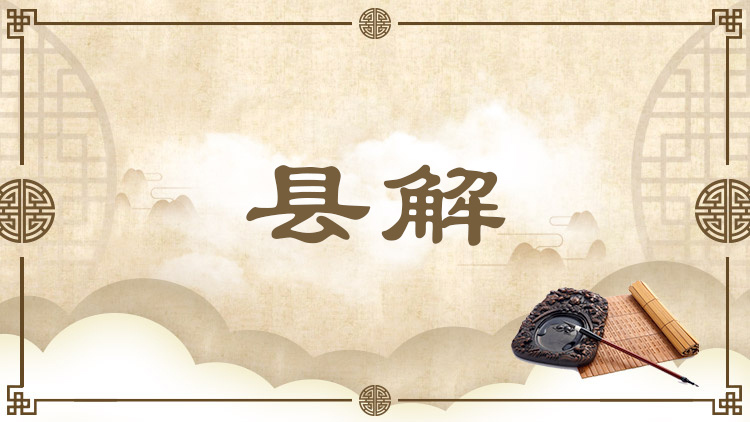县解 Freeing the Mind from Bias

解除倒悬的状态(县:“悬”的本字)。也作“悬解”。出自《庄子·养生主》。庄子认为,人们往往站在自我立场上去看待他者,因而按照自己的标准形成对他者、对世界的成见,让自己的心处于某种执着的情绪或状态之中。在庄子看来,这种执着于内心成见的状态,就好像心被捆缚倒悬起来。而破除内心的成见,解除心被倒悬的状态,即是所谓的“县解”。
Literally, this term means to reverse the state of one being hung upside down. It originated from Zhuangzi. The author Zhuangzi found that people tend to look at other people or things from their own positions, and they thus develop biased views about others and the world. Their mind is consequently in a state of tension. To Zhuangzi, this state of mind of clinging to one's prejudice is like one being bound and hung upside down. So, breaking free from subjective bias is like freeing one from this state of tension.
引例 Citation:
◎适来,夫子时也;适去,夫子顺也。安时而处顺,哀乐不能入也,古者谓是帝之县解。(《庄子·养生主》)
正该来时,老子应时而生;正该去时,老子顺时而死。安于时命而顺应变化,悲哀和欢乐就不能进入内心,古时候称这样做为天然的解除倒悬。
When time called, Laozi was born; when time was due, he passed away. When one follows the law of nature, he will not be disturbed by grief or joy. This was known in ancient times as a natural way of freeing the mind from bias or distorted perception, like freeing one from a state of being hung upside down. (Zhuangzi)
推荐:教育部 国家语委
供稿:北京外国语大学 外语教学与研究出版社
责任编辑:刘怿莎





